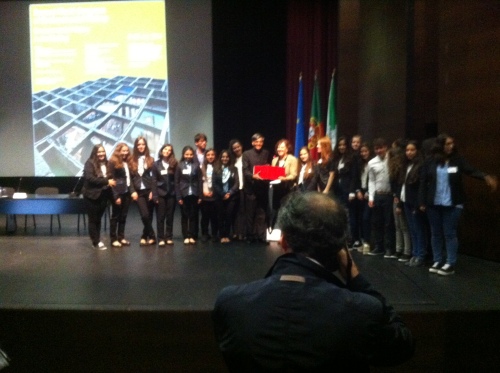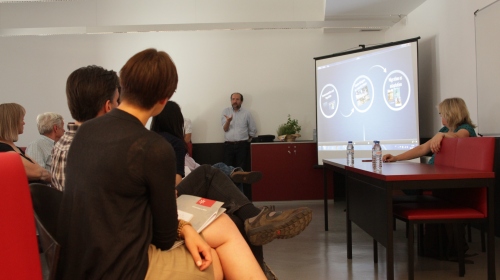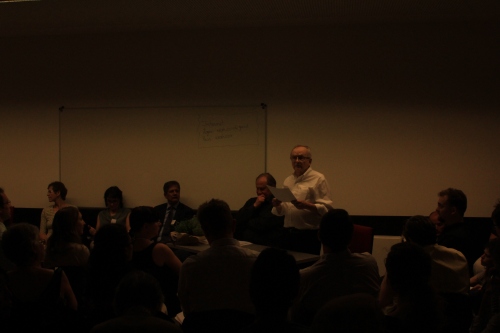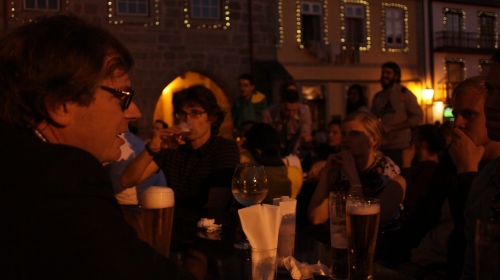Second World Congress of Environmental History – Part 1
by johangardebo
8-12 July 2014, the Second World Congress of Environmental History (WCEH) was held in Guimarães, Portugal. The effort was to provide a global forum for historians of all continents to discuss the different (and differing) types and stripes of environmental history. It was my first large conference in the field, and the many impressions are difficult to condense, so I have focused on what seemed to be the recurring, and provoking, theme of the WCEH: What is and should environmental history be?
Mohan Munasinghe took part on the topic of of how learning from history allows us to envision a sustainable global future. His work had several examples of the predicament humanity finds itself in, and also highlighted (some of) the power dimensions involved in making Earths environment increasingly uninhabitable for biodiversity (including human society). His message that ‘historians have a role to play’ set the tone for several discussions to come.

Professor Mohan Munasinghe message for resource usage, both material and intellectual:
“We need to work on sharing resources. I tell you this because I received a Nobel price due to collaboration with many other people. And having a shared Nobel price is better than having no Nobel price at all.”
This ‘role’ came down to a series of terms and readings. David Lowenthal’s work on George Perkins Marsh connected to themes of ‘sustainability’ and how this had been envisioned at different times of Marsh’s life. For one thing he seemed a proponent of the Anthropocene, meaning not the term itself but the reading of it as nature being the responsibility of mankind and hence the need to develop explicit relationships towards it.
The Anthropocene itself became the subject of debate as Eric Paglia, Nina Wormbs and Sverker Sörlin proposed further readings of Fernand Braudel since there are similarities between his description of nature and contemporary models of environmental predicaments. John McNeill moderating these discussions were sceptical to the conclusions, but sympathetic of the efforts: Thucydides did not know how the Peloponnesian war would end but decided to write that history anyway. To me that is a proof of concept for analysing enterprises in the making.
Marco Armiero was sceptical of using the term at all as it conflates humans and humanity into a non-defined ‘we’ that is impossible to mobilise as a constructive force. More critically, a certain type of economic system have created the problems now faced, and to present emission tariffs only serve to legitimise the production of companies and to continue the process of turning citizens into consumers. To this end, “Al Gore did to Environmentalism what Stalin did to Socialism”.

Marco Armiero and Giovanni Bettini on the changing meaning of “migration” as climate changes, primarily caused by the North, forces populations, predominantly from the South, to migrate in search of equitable environment.
Readings and choice of terminology I think relates to the larger topic addressed by Munasinghe that historians have a role to play but also that environmental history as a field seeks to find its roots and purpose. During a panel debate on trade relations and state neutrality, the issue was raised as to whether this was to be considered ‘environmental history’. What does one respond to that? The matter is not whether or not we delineate environment as nature or culture but what role this field have played in various contexts so far and can come to play in the future.

Donald Hughes opens the panel of “Present at the Creation” on the geneaologies of Environmental History.
Donald Hughes addressed this question by looking at the genealogy of environmental history in different parts of the world. Of these stories, I found the Chinese interpretation, by Mei Xueqin, one of the most intriguing as the field emerged after the Cultural Revolution and as such became a haven for progressive intellectuals. A similar history can be told about African scholarship where environment is closely connected to subaltern and postcolonial critiques of Western narratives and imperial history.
Gregg Mitman’s proposal was for historians to study the process of turning “protest into policy”. I firmly believe that environmental historians have a significant role to play here, as Paul Hirt showed in his study of the role of hydropower companies to promote conservation and fair distribution of power throughout US society. This is a historical process and one in which entrepreneurship can be vindicated as, under proper regulations, as a progressive force in the eyes of activists. If nothing else, Hirt did scored some points by described this relationship as a combination between capitalism and socialism; a simile Swedes are all too fond of discussing whenever possible.
But Lowenthal also stressed that society at present does not have ‘confidence’ as Marsh had in institutions and people. And Mandy Martins suggested we have seen a devolution of decision-making, taking responsibility away from those who have it.

Mandy Martins artistic creations of Australian landscapes , often guided in its motives by Aborigine interpretations of the environment.
On a sidenote, another view on this development is the ‘re-enchantment’ of the world as Mikael Hård coined it – meaning an end to the Weberian omen of continuous disenchantment and critique of rationalisation.
Can historians then contribute to restoring this confidence? To fully assess the efforts of Mitman and the like we should remember that “From Protest to Policy” and similar initiatives will proliferate as means of acquiring definition over what environmental history should be. AND/OR the large forums like WCEH will break down into more specialised workshops focusing on the specific concerns, terminologies and methodologies which attract particular stripes of environmental historians. But I believe this might well be the role of WCEH, to serve as the common ground for knowing where the field globally – to keep debates visible.

[…] -Second World Congress of Environmental History – Part 1 by Johan Gärdebo […]